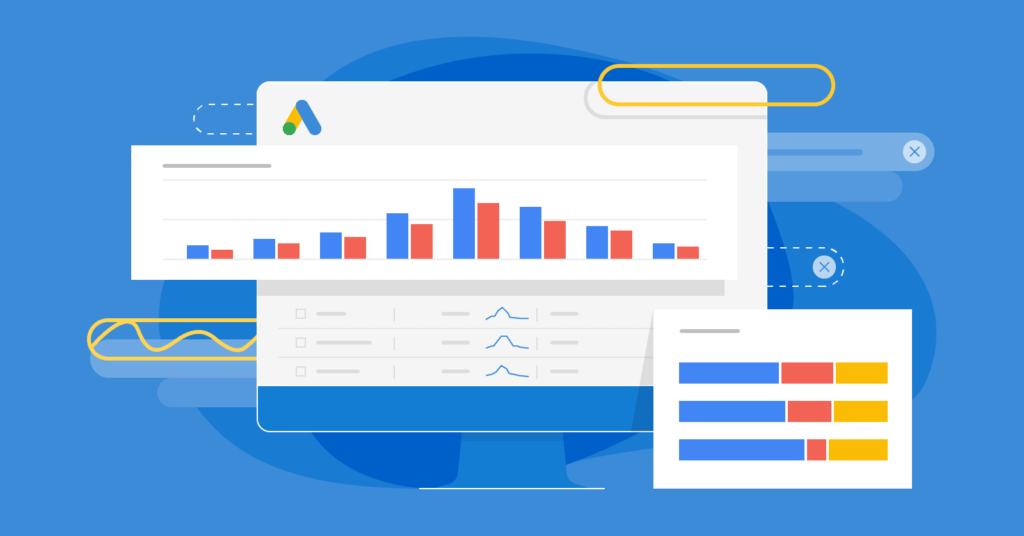Getting the Hang of Key Metrics: An All-in-One Guide
- Hanzla Ijaz
- digital marketing, keyword metrics
- 3 Comments
|
Getting your Trinity Audio player ready...
|
Keyword metrics serve as the backbone of digital marketing and Search Engine Optimisation (SEO). These metrics provide key insights into the performance of specific keywords, helping marketers to track and enhance their content strategies. Understanding important keyword metrics is crucial for any business aiming to improve its online visibility and attract targeted traffic. By meticulously analyzing these metrics, businesses can identify trends, measure effectiveness, and adjust strategies to better align with audience needs and search engine algorithms.
Tracking keyword metrics allows for the optimisation of content, ensuring that each piece of material resonates with the intended audience and ranks well in search engine results. This constant monitoring enables marketers to adapt their strategies in real-time, fostering a more dynamic and responsive approach to online marketing. The significance of keyword metrics extends beyond organic search results; they play a vital role in Pay-Per-Click (PPC) campaigns, dictating which keywords to bid on and how to allocate marketing resources effectively.
Additionally, keyword metrics have a profound impact on the content creation process. By understanding the search volume, competition, and relevance of different keywords, content creators can craft valuable and engaging materials that meet the demands of their audience. This, in turn, increases the likelihood of attracting high-quality traffic and improving overall user engagement on the website. Moreover, the insights derived from keyword metrics can inform link-building strategies, helping to identify opportunities for securing valuable backlinks and boosting domain authority.
Overall, keyword metrics are indispensable for achieving a holistic and effective online marketing strategy. From enhancing search visibility to driving targeted traffic, these metrics provide crucial data that guides every aspect of digital marketing efforts. As we delve deeper into this comprehensive guide, we will explore the various types of keyword metrics and their practical applications, equipping you with the knowledge to leverage these insights for your own marketing success.
Key Metrics to Monitor
Effective SEO strategy requires rigorous monitoring of important keyword metrics to fine-tune your approach and optimise results. Among the primary metrics to consider, search volume, keyword difficulty (KD), click-through rate (CTR), and cost per click (CPC) stand out due to their significant impact on performance.
Search Volume: Search volume quantifies the number of searches a specific keyword receives within a given timeframe, usually monthly. High search volumes often indicate a higher level of interest, but they can also mean increased competition. Understanding search volume helps prioritise keywords that can drive more traffic to your site.

Keyword Difficulty (KD): KD measures how challenging it would be to rank for a particular keyword. It considers factors such as domain authority, backlink profiles, and content quality of top-ranking pages. Low KD indicates easier ranking opportunities, while high KD requires more effort and resources. Balancing high and low difficulty keywords strategically can enhance overall SEO results.

Click-Through Rate (CTR): CTR is the ratio of users who click on your link to the number of total users who view your search result. CTR is crucial as it reflects how compelling your title tags and meta descriptions are. Higher CTR improves your rankings over time, while poor CTR might suggest the need for optimizing your copy to be more engaging.

Cost Per Click (CPC): CPC is predominantly a paid search metric that indicates the cost associated with each click received from a paid ad. In SEO, understanding CPC helps gauge the commercial value of a keyword. Keywords with higher CPC often represent high-value search queries and should be integrated into your strategy for potential ROI benefits.

Secondary metrics like keyword trends and relevancy scores also play vital roles in SEO. Keyword Trends show fluctuations in search volume over time, highlighting seasonal opportunities or shifts in audience interest. Relevancy Score measures how well a keyword matches your content’s topic, ensuring that your chosen keywords align closely with user intent, further boosting your rankings and engagement rates.
Monitoring and understanding these key metrics form the backbone of a robust SEO strategy, aiding in making data-driven decisions and achieving sustainable success.
Tools for Measuring Keyword Metrics
Effectively measuring keyword metrics is crucial for understanding and optimizing your website’s performance. Several tools are available to help you track and analyse these metrics, each offering unique features and benefits. Here, we will explore four popular tools: Google Keyword Planner, SEMrush, Ahrefs, and Moz.
Google Keyword Planner

Google Keyword Planner is a free tool offered by Google Ads that provides insights into keyword search volume, competition, and trends. It is particularly valuable for planning advertising campaigns and understanding which keywords are most relevant to your audience. One of the most significant advantages of Google Keyword Planner is its integration with Google’s vast search data, providing reliable and accurate metrics. However, the tool can be limited for those looking for more advanced features or comprehensive competitive analysis.
SEMrush

SEMrush is a comprehensive SEO tool that offers a wide range of features for keyword research, competitive analysis, and website audits. Its keyword metrics include search volume, keyword difficulty, and CPC (Cost Per Click). SEMrush excels in offering in-depth competitive analysis, allowing users to see which keywords their competitors are ranking for and how their own keyword strategy compares. The platform’s versatility and extensive database make it a preferred choice for many SEO professionals. However, it is a paid tool, which may be a drawback for smaller businesses or individual users.
Ahrefs

Ahrefs is renowned for its robust backlink analysis capabilities, but it also offers excellent keyword research tools. With Ahrefs, users can explore keyword search volume, difficulty, and the potential traffic each keyword can drive to their site. Additionally, Ahrefs’ keyword explorer provides insights into the top-ranking pages for any keyword, helping users understand the competition. The main disadvantage of Ahrefs is its higher price point, which might not be feasible for everyone.
Moz

Moz offers several tools to aid in keyword research and SEO analysis. Moz’s Keyword Explorer helps users find relevant keywords, assess their difficulty scores, and explore SERP (Search Engine Results Page) analysis. A unique feature of Moz is its Priority score, which combines search volume, difficulty, and CTR (Click-Through Rate) to suggest the most lucrative keywords to target. The cons of Moz include limited datasets for non-premium users and fewer updates compared to other tools.
Utilizing these tools effectively involves regularly monitoring your keyword performance metrics, understanding your competitors’ strategies, and adjusting your content and link-building efforts accordingly. By integrating insights from multiple tools, you can develop a comprehensive keyword strategy that enhances your website’s visibility and drives more targeted traffic.
Applying Keyword Metrics to Improve SEO Strategy
Integrating important keyword metrics into your SEO strategy is essential for achieving enhanced online visibility and higher search engine rankings. The first step involves the careful selection of keywords. Start by analysing metrics such as search volume, keyword difficulty, and relevance to your target audience. Tools like Google Keyword Planner and SEMrush can provide invaluable insights into these metrics, helping you to identify high-potential keywords that match your business’s goals and audience intent.

Once you have identified suitable keywords, the next step is to create optimised content. This involves naturally incorporating the selected keywords into high-quality, engaging content. It’s crucial to address user intent, ensuring the content answers users’ questions or solves their problems effectively. Remember, keyword stuffing can harm rather than help your SEO efforts, so maintain a balance.
For instance, a case study involving an e-commerce website demonstrated the effectiveness of this approach. By focusing on long-tail keywords with moderate search volumes and low competition, the site experienced a 150% increase in organic traffic over six months. They achieved this by producing blog posts, product descriptions, and FAQs that comprehensively addressed customer queries and naturally included these long-tail keywords.
Monitoring and analysing the performance of your optimised content is equally important. Utilise tools like Google Analytics and Search Console to track metrics such as organic traffic, bounce rate, and keyword rankings. This continuous monitoring enables you to iterate and refine your strategy. For example, if a particular keyword drives significant traffic but has a high bounce rate, you might need to tweak the content to better meet user expectations or adjust the keyword strategy.

Moreover, the keyword landscape is dynamic; it evolves based on trends, seasonal changes, and updates in search algorithms. Therefore, ongoing keyword research and strategy adjustments are vital. Periodically review your keyword metrics and stay informed about industry changes to keep your SEO efforts effective and relevant.
By systematically applying keyword metrics to your SEO strategy, you can achieve better search engine rankings, attract more qualified traffic, and ultimately, enhance your online presence and business performance.







Бесплатный аккаунт
Thank you for your sharing. I am worried that I lack creative ideas. It is your article that makes me full of hope. Thank you. But, I have a question, can you help me?
Adams
Your article helped me a lot, is there any more related content? Thanks!
Hanzla Ijaz
Yeah You can explore my blog for more:
https://hanzlaijaz.com/